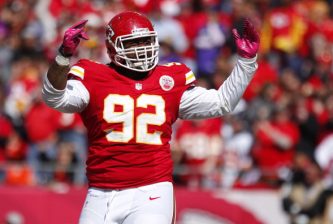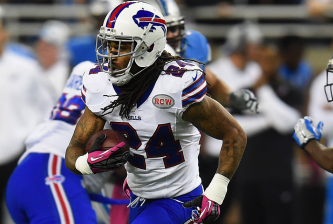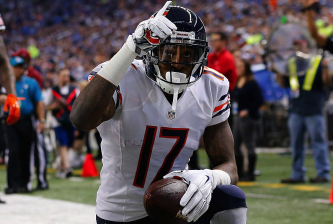The NFL introduced the wild card playoff system in 1970. Of course, the sleek and sexy wild card moniker wasn’t officially adopted until several years later, because everything needs a hip name.
But the concept of including a wild card team—or later teams, the format we now know well— has been around in some form for 44 years since the NFL-AFL merger. Throughout league history only 10 wild card teams have advanced to the Super Bowl, and just six have won the league’s top prize.
That shows just how much the odds are stacked against wild card teams. As one of the two lowest-seeded teams in either conference, a wild card team has a tough matchup immediately. But the mountain climb goes beyond that single game.
By nature the one-game NFL playoff format invites the opportunity for chaos and happenstance to change any outcome. Even if a wild card team is more talented than an opponent, simple dumb luck might not be in their favor.
That’s true for every team, in every playoff game. But wild card teams have to play one more game, and while doing that they face another daunting task: winning three straight playoff games on the road.
Soak all of that in, and then consider the four teams who took a back door into this year’s postseason tournament. Which one has the best chance to being playing in Arizona next month?
The answer is pretty easy: the Detroit Lions.
Detroit led the NFC North for much of the season, and the Lions did it with Calvin Johnson gimping around. In his absence Golden Tate emerged as more than just a complementary receiving option. He’s a consistent threat as a physical grappler in the open field.
Tate led all wide receivers in yards after the catch (691 yards), and quarterback Matthew Stafford threw only 12 interceptions, his lowest career total over a full season. Toss in Johnson still doing his Megatron thing (1,077 receiving yards even while missing three games and being severely limited in others), along with running back Joique Bell rumbling for 1,182 yards from scrimmage, and there’s no shortage of dynamic offensive weapons in Detroit.
And that’s not even what led to a quick turnaround from seven wins a year ago to 11 in 2014.
The Lions are a team driven by defense, and making every yard a horrible experience. Defensive tackle Ndamukong Suh is the anchor with his speed and pocket-collapsing strength. He recorded a defensive stop on 9.7 percent of his run snaps, and led all defensive tackles in quarterback pressures (per Pro Football Focus).
Suh is flanked by Ziggy Ansah, and a nearly healthy Nick Fairley, who’s optimistic he’ll be able to play Sunday against the Dallas Cowboys. Along with defensive end George Johnson they power a defensive front that recorded 42 sacks.
But the Lions’ real defensive gut punch comes against the run, an effort also driven by Suh and his band of merry running back mashers. Detroit allowed a league low 69.3 rushing yards per game this season and only 3.2 per carry. A slice of perspective on that per-game number: The Lions became one of only 10 teams in league history to give up less than 70 rushing yards per game.
The road to the Super Bowl is a treacherous one for the Lions, as it is for any wild card team. But that suffocating run defense is what can easily fuel a deep playoff run.
The toughest challenge comes immediately: containing Cowboys running back DeMarco Murray, who set a record with eight straight 100-plus yard games to begin the season (he finished with a league high 1,845 yards).
The NFC bracket is filled with lumbering rushers beyond Murray. A title run could mean dealing with Seattle’s Marshawn Lynch, who led the league with 88 missed tackles forced, per PFF. A Panthers rushing offense that averaged 199.3 yards per game in December may also stand in Detroit’s way, or the Packers and human hammer Eddie Lacy.
So the Lions’ core strength will be tested, and often. The 16-game sample size provided so far this season—which includes allowing only one 100-plus yard rusher—says they can pass that test repeatedly while getting plenty of offensive support.




